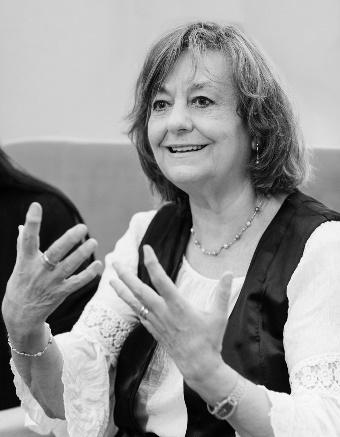
Quarantine
The pain isn’t contagious,
I assure you, the pain cannot be transmitted,
No nerve twisted in my peer’s body
causes excruciating touching inside me.
The pain is not contagious, the pain
Singles out more atrocious than the walls,
No quarantine isolates so perfectly,
It’s trivial what I say – that’s the argument.
Lord, how much literature we contain!
The feelings – remember? – we’ve learned about them yet in school.
Around the bed of the dying they cry,
But no one is contaminated by death.
Be calm, watch over the sick altruistically.
You will not take their pain, fear not.
He died. Does anyone want to follow him?
Only traditional lamentations.
.
Carantină
Durerea nu e contagioasă,
Vă asigur, durerea nu se transmite,
Nici un nerv răsucit în trupul aproapelui meu
Nu produce în mine sfâşietoare atingeri.
Durerea nu e contagioasă, durerea
Singularizează mai atroce decât zidurile,
Nici o carantină nu izolează atât de perfect,
E banal ce spun – acesta e argumentul.
Doamne, câtă literatură conţinem!
Sentimentele – vă amintiţi? – le-am învăţat încă la şcoală.
În jurul patului celui ce moare ei plâng,
Dar nu se contaminează de moarte nici unul.
Fiţi liniştiţi, privegheaţi altruişti pe bolnavi.
Nu veţi lua durerea lor, fiţi fără teamă.
A murit. Vrea cineva să-l urmeze?
Numai bocete tradiţionale.
.
Translator’s Note
Ana Blandiana belongs to a generation of poets who managed, in the ’60s, to revive the “pure” lyricism, which already had a tradition created by the representatives of literature between the two world wars, after a period in which the proletkult oriented its declamatory discourse on “the wonderful new world” (Aldous Huxley), that new world of the communistic era in full process of assertion, at the price of a soul sacrifice whose deep traces are seen and felt even today.
The creations of proletkult, devoid of any kind of aesthetic value, are basically texts dictated by the dogmatic communist ideology, which imposed on literature pre-established, distorting and narrow models. This generation, which includes Nichita Stanescu, Ioan Alexandru, Marin Sorescu and other valuable writers, manages to annihilate those creations in which floats a reality cosmetized with thick lines and to propose an internalized lyrical discourse, with fine subjective notations, whose artistic intentionality proves to be the harmony created between the creator’s being and the metaphysical plane, penetrated by the elements.
Even from the first volume, “The first person plural” (1964), Ana Blandiana confesses her poetic belief, that of making poetry a way of asserting her personality, in problematic contact with the world around her. The specific marks of these youthful creations are spontaneity, sincerity, the exalted joy of merging the lyrical self with the world, the intensity of the immediate, plenary experience.
The favorite theme of these poems is candor, manifested as a form of continuous wonder in front of the miracle of life, but also in front of one’s own being:
“From the mirror a frail body looked at me
With the distinct clavier of ribs
The heart pressed solemnly on the key
Trying to appear in mirror’s gleams.”
Later, in maturity poetry, Ana Blandiana focuses on elegiac and problematic meditation, the poetic discourse becoming serious and solemn, with an accentuated metaphysical component.
In the same register is treated the ethical theme, the issue of responsibility and involvement in the mechanism of social existence, in which the predominant pain is the confessed pain over the impossibility to identify the limits of good and evil, the inability to discern moral values:
“Elders coming tenderly to the cemetery
As if on a protocol visit
To the other world,
Tired of the thought
That they still must return home,
That they cannot stay
Permanently.”
198 total views , 1 views today
